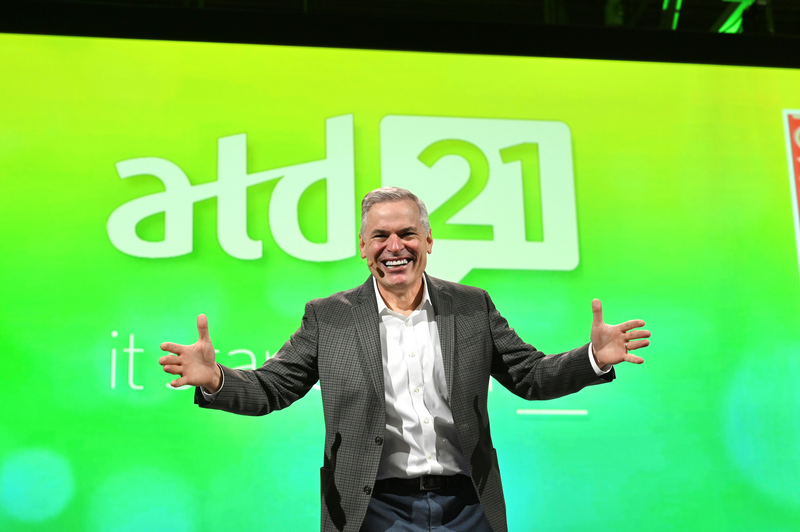ATD Blog
Patrick Lencioni Offers Three Steps to Regenerate Teams
Tue Aug 31 2021

Bookmark
Teamwork is not a virtue, stated New York Times bestselling author Patrick Lencioni during his Tuesday keynote address. Rather, he said it is a strategic choice we all need to make. To build teams that function well, talent developers and employers must be serious about what that entails.
Lencioni explained that you build teams through three stages. The first is making sure you have the right people. He called out that individuals who make ideal team members have a combination of three characteristics: humility, hunger, and smarts. And he affirmed that they need all three.
Being humble is about being other-centered, he said. Humble individuals don’t lack confidence. Rather, just as it’s not right to brag about your skills—that is to be arrogant—it’s not good nor humble to ignore your unique skills and talents.
Next, hungry individuals have high standards, Lencioni explained. They never do just the minimum. But he clarified that does not mean they are workaholics whose lives revolve around work. And for the third trait, smarts in the team sense is not about being intellectually smart but about being able to read people and situations. Smarts is about common sense and emotional intelligence.
Individuals who lack any one of those skills can learn them, Lencioni encouraged. He recommended teammates serving as coaches and calling colleagues out when they are demonstrating negative behaviors, such as slacking.
Once you have the right people, Lencioni advised ensuring those individuals are in the right roles. You can facilitate that by understanding individuals’ “working genius,” as Lencioni defined it, of which there are six types.
Wonder—exploring new ways of working
Invention—sharing original ideas
Discernment—having an innate sense of judgment
Galvanizing—rallying and motivating others
Enablement—bringing other people along
Tenacity—being energized by completing projects
Lencioni said that individuals generally exhibit two of the six types—and those give them joy and energy. The others—two are considered competencies and two are areas of frustration—drain employees of that joy and energy. He also noted that those with the enablement genius are the glue of many teams.
The final stage to team building, Lencioni detailed, is to get the team to perform. You do that by overcoming trust issues, fear of conflict, lack of commitment, accountability shortcomings, and inability to achieve results. Lencioni encouraged attendees to start with trust, because that serves as the foundation for everything else.
